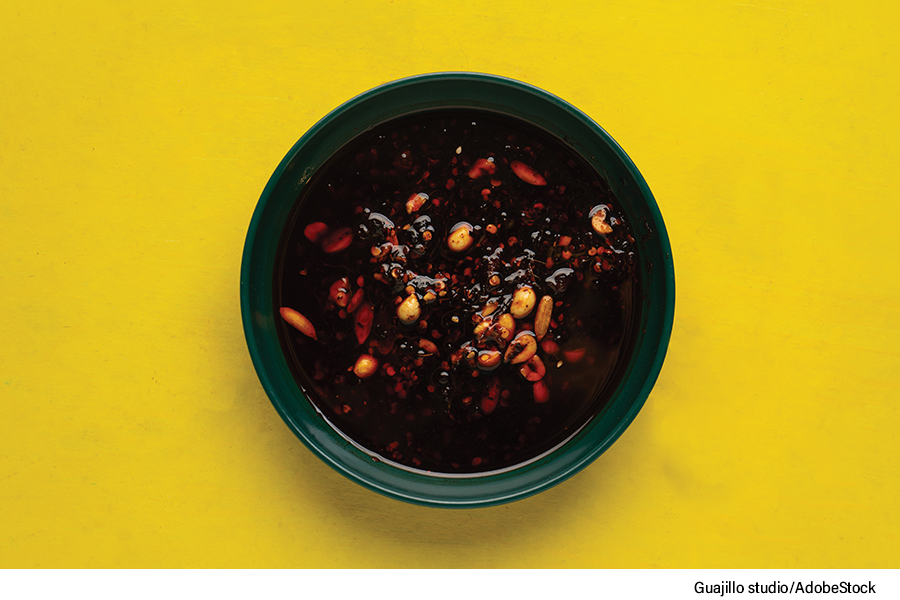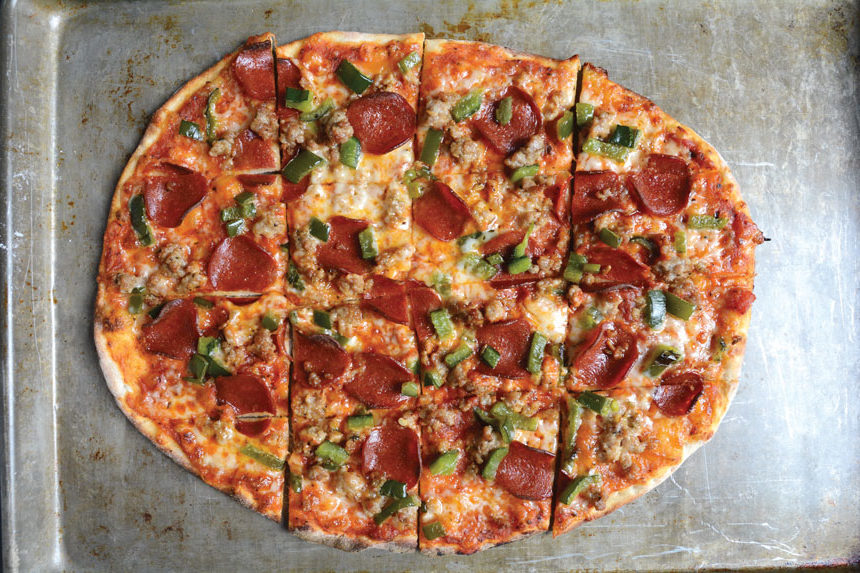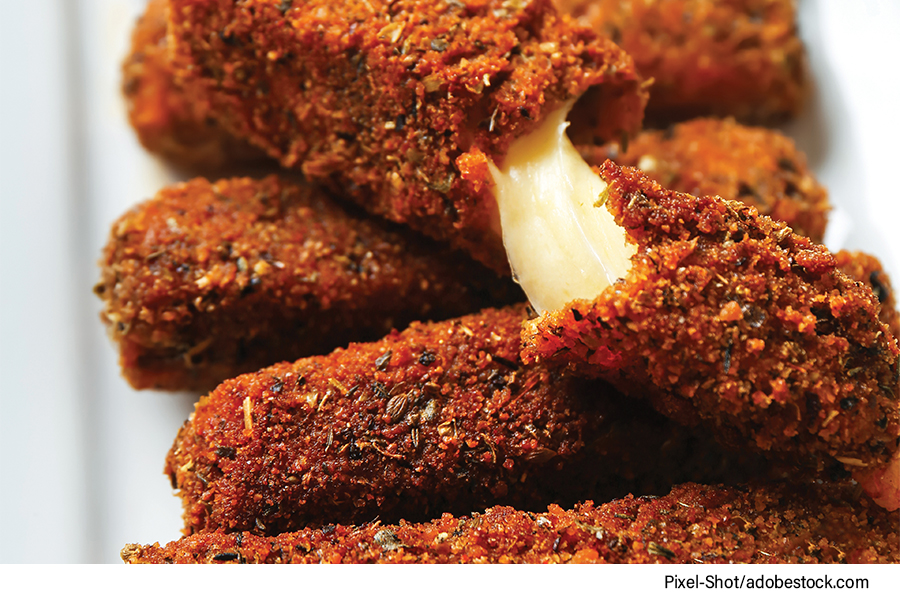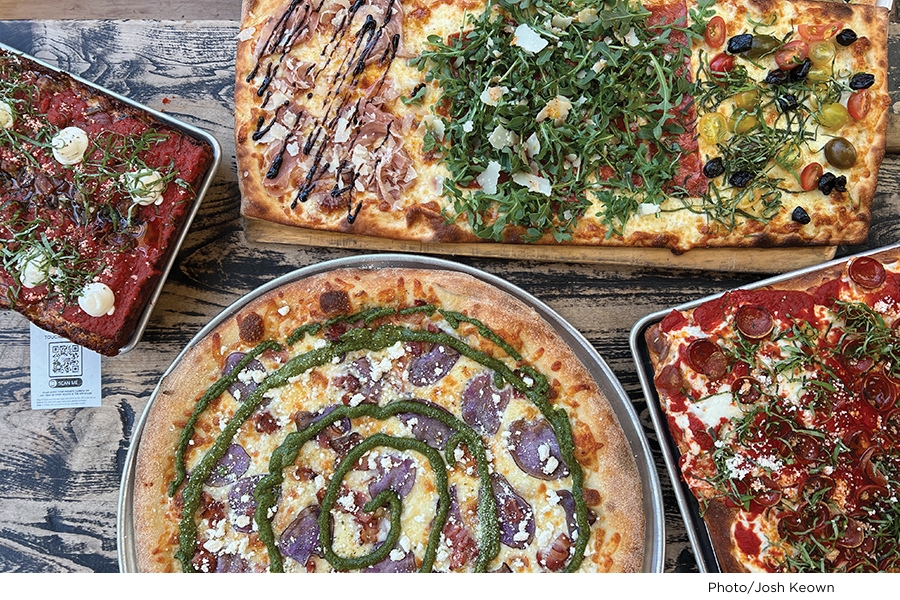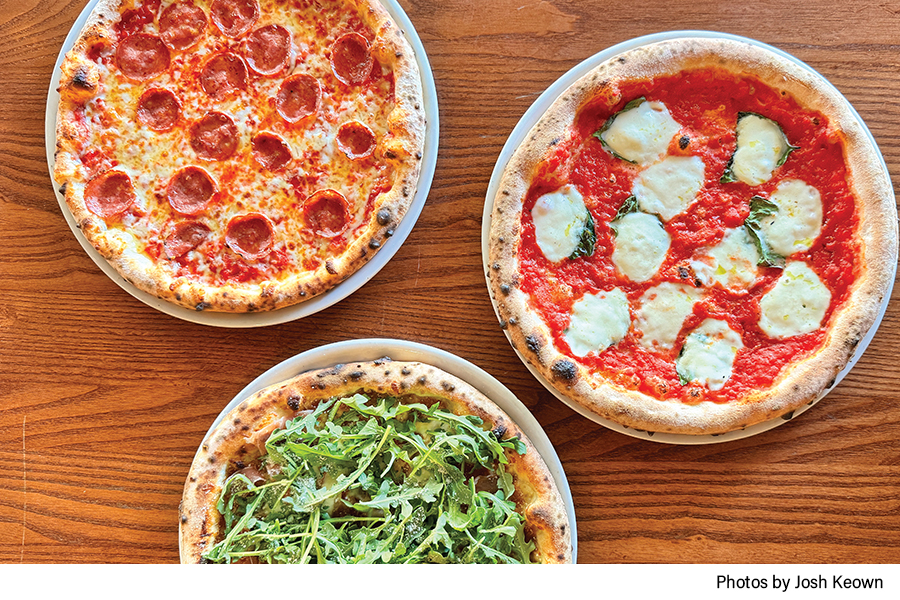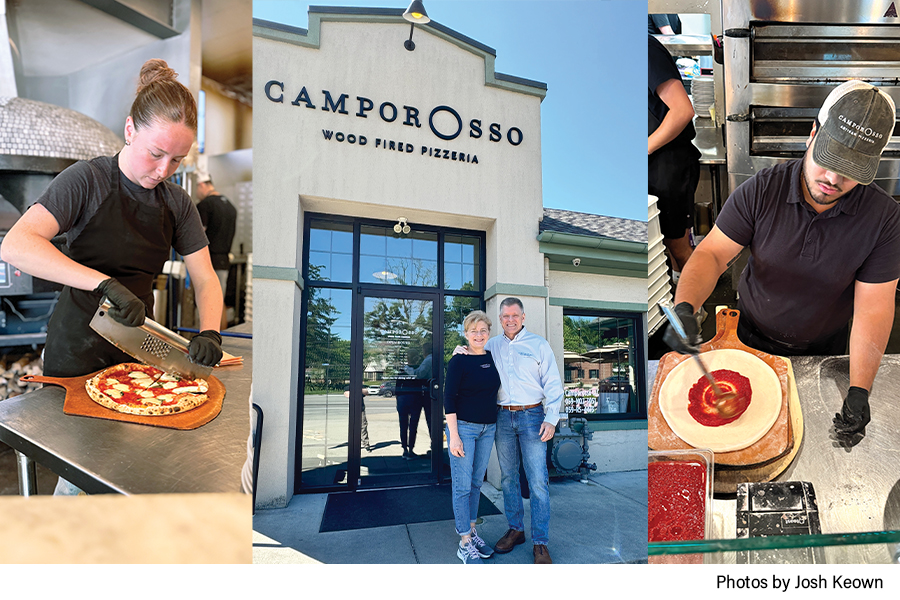Canned Veggie to Pizza Topping Star
Writing this article brought me back to the R&D days of Wholly Stromboli. I had many pie-in-the-sky ideas about which products I would and would not use in my restaurant. Settling for canned roasted red peppers, peeled garlic in a plastic jug, and pickled jalapeño, for convenience’s sake, were options that I initially did not want to consider. Because I prided myself on using only the freshest ingredients and loved the flavor and aroma of a fresh clove of garlic or the taste and texture of fresh roasted red peppers, I was going to figure out the labor and efficiency piece. I am sure you know how that worked out. Of course, I buy whole peeled garlic in a plastic jug, canned roasted red pepper, and as for the jalapeños … I only switched to fresh sliced jalapeños about a year ago.
My point is if you plan to do any amount of volume in your restaurant, you’re probably going to have to plan on using canned veggies, and while I consider some canned veggies like sliced Spanish olives and pickled jalapeño a commodity, other things like artichoke hearts, fire-roasted green chilies, roasted red peppers and especially tomatoes can vary in taste, texture and quality.
How much to spend should be driven by your price point and your target food cost. For what I consider commodity canned goods, my main focus is the consistency of the product and pricing. However, when we’re talking about canned tomatoes, I pull out all the stops! I only use the best. I want a tomato that is packed fresh from the field, not subjected to excess heat during the canning process, and does not contain any preservatives.
Fire-roasted green chilies are one of my favorite ingredients to use in soups, ‘bolis and pizzas. We are pretty spoiled here in Colorado because we have some of the best fire-roasted Hatch green chilies around. One of my favorite fall traditions is going to pick up a bushel of fresh fire-roasted chilies, but hand peeling and dicing bushels of them is not practical and the labor cost does not make good financial sense for my operation.
When looking for a canned Hatch green chili, I want moderate heat and minimal residual skins, seeds, stems or crowns. There are different levels of quality, and you will find less of that waste material in a higher-quality product. A note about diced Hatch green chilies: they are a potentially hazardous product and must be handled properly according to HACCP guidelines for storage. Therefore, they must be stored below any ready-to-eat foods. When storing them, I prefer to drain off some of the natural juices, only retaining enough to keep them from drying out. I prep them into the containers that we use on the line and use a perforated scoop to portion them for use in recipes.
I prefer artichoke hearts canned in their natural juices instead of a marinade. Not that I don’t like the taste of the marinade, but I use artichokes in a variety of salads, pasta dishes, pizzas and stromboli, and the marinade will overpower the other flavors. I prefer to store these in their juices, enough to cover them. They tend to be in large pieces, so I cut them in half.
I find there is a balance between retaining some of the natural juices of canned vegetables and draining them completely. On one hand, storing them on your makeline with the juices intact will preserve the quality and prevent them from drying out. On the other hand, too much juice will make for a soggy pizza or stromboli and add unwanted flavors to your pasta dishes. My preferred method is to store these ingredients on the line, with enough juice to cover the ingredients. I prefer to use a perforated portion cup or scoop so that the juice can be drained off at the time of use. I don’t find it necessary to rinse most vegetables, however, if I am using beans in a salad, I do prefer to rinse them before use.
Canned vegetables are convenient to use, easy to store, have a long shelf life, and are generally safe because the heat during the canning process kills most bacteria. That being said, it is important to handle canned goods properly to ensure the safety of your guests.
Here are a few tips for safely handling canned goods. Cans should be inspected during the receiving process. Significantly dented cans, especially if the dents are located on a seam whether it be along the lid, bottom or on the side seam should be separated from the rest of your inventory and labeled for return to your distributor. If you drop a can and cause the dent yourself, open the can immediately, place the contents in another container, and put the product into rotation. Ensure that your can opener blade is clean, sharp and in good working condition. Dirty blades can potentially contaminate food products with deadly bacteria, and dull blades can cause injuries. Partially attached lids are dangerous and can cause nasty injuries to your team. Do not store ingredients in opened cans. Place them in an NSF-approved container with a day dot as directed by your local health department guidelines.
While you may not think of canned corn as a typical ingredient in a pizzeria, corn is a creative way to bring some diversity to your menu. Take your basic green salad, add canned corn, grilled chicken, avocado, jalapeño rings and tomato for a fun southwestern salad. Zip up your ranch dressing by adding diced, canned jalapeño or green chilies and Buffalo sauce.
Elote corn or Mexican Street Corn is a dish that is typically made with roasted corn stripped from the Cobb, blended with mayonnaise, crema, Cotija cheese, and a chili lime seasoning. My version of Mexican street corn pizza is a creative spin on the popular dish. I make a white pizza, using cream cheese blended with diced, canned green chilies as the base and mozzarella cheese, drained canned corn tossed in lime juice, cayenne pepper, cumin, granulated garlic and chili powder, add grilled chicken, and jalapeño rings, and bake. Top with the seasoned corn and drizzle with a dressing made from a mixture of crema and mayonnaise and dress with fresh cilantro.
Summed up, canned veggies add efficiency and convenience to our operations, but why not have a little fun with them as well?
MELISSA RICKMAN is co-founder of Wholly Stromboli in Fort Lupton, Colorado, and member of the World Pizza Champions.


